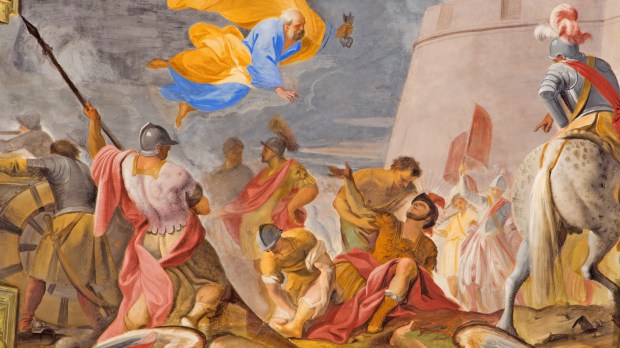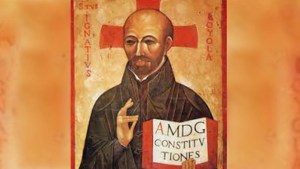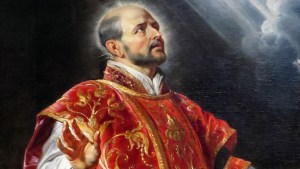Lenten Campaign 2025
This content is free of charge, as are all our articles.
Support us with a donation that is tax-deductible and enable us to continue to reach millions of readers.
God often works in mysterious ways, and for one particular saint, he used a cannonball to redirect him in the right way. If St. Ignatius Loyola hadn’t been struck in battle, who knows what might have happened.
Before that fateful day, St. Ignatius was quite the womanizer, gambler, and fighter. Practicing the Catholic faith wasn’t his highest priority.
Instead, his chief priority was military life. He loved the battlefield and his imagination was enraptured by classic tales of knights and ladies.
Then one day his life took a radical change. A cannonball broke his leg.
Cannonball
Here is how St. Ignatius narrates it in his autobiography (written in the third person).
The citadel of Pamplona was held in siege by the French. All the other soldiers were unanimous in wishing to surrender on condition of freedom to leave, since it was impossible to hold out any longer; but Ignatius so persuaded the commander, that, against the views of all the other nobles, he decided to hold the citadel against the enemy.
After the walls were destroyed, Ignatius stood fighting bravely until a cannon ball of the enemy broke one of his legs and seriously injured the other. When he fell, the citadel was surrendered. When the French took possession of the town, they showed great admiration for Ignatius. After twelve or fifteen days at Pamplona, where he received the best care from the physicians of the French army, he was borne on a litter to Loyola.
He endured many surgeries and was subsequently forced to stay bedridden for several weeks.
This period of convalescence was exactly the thing needed to change Ignatius’ heart.
Forced to read saint biographies
While recuperating, he desired to read more stories of knightly adventures. Providentially, there were no such books around. This forced him to read two books that deeply shaped him and transformed him into another person.
As Ignatius had a love for fiction, when he found himself out of danger he asked for some romances to pass away the time. In that house there was no book of the kind. They gave him, instead, “The Life of Christ,” by Rudolph, the Carthusian, and another book called the “Flowers of the Saints,” both in Spanish. By frequent reading of these books he began to get some love for spiritual things.
This set him on a much different path, where he would found the influential Society of Jesus, more commonly known as the Jesuits.
It all started with a cannonball shot to the leg.




